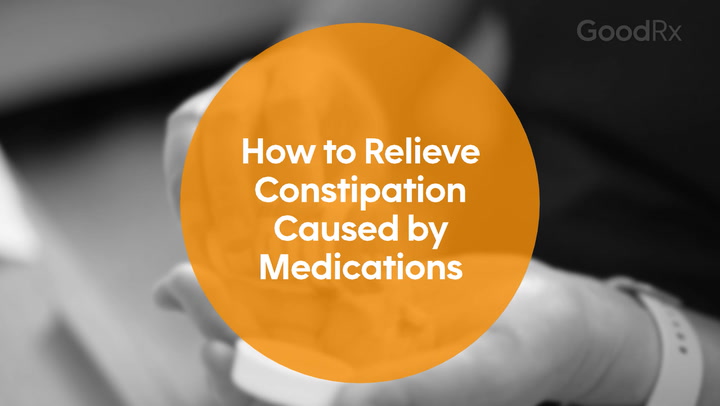
10 Nortriptyline (Pamelor) Side Effects You Should Know About
Key takeaways:
Nortriptyline (Pamelor) is a tricyclic antidepressant medication. It’s FDA-approved for depression, but it’s also used off-label for pain-related conditions.
Common nortriptyline side effects include dry mouth, drowsiness, and constipation. Weight gain and trouble peeing are also possible. These side effects often get better on their own and can be managed at home.
Serious nortriptyline side effects include heart rhythm changes and thoughts of self-harm. If you have bothersome or severe side effects from nortriptyline, contact your healthcare provider right away or seek emergency care.
Access savings on related medications
Table of contents

Nortriptyline (Pamelor) is a tricyclic antidepressant (TCA) medication. It’s FDA-approved to treat depression, but it’s also used off-label to treat conditions like chronic pain and neuropathy (nerve pain). TCAs aren’t prescribed as often as other antidepressants, owing to their side effects. So if you’ve been prescribed nortriptyline, you may wonder what to expect when taking it. Knowing what side effects to watch out for can be helpful.
Here, we’ll cover 10 nortriptyline side effects you should know about and how to manage them.
1. Dry mouth
Dry mouth is a common nortriptyline side effect. TCAs are anticholinergic medications. This means they block the effects of acetylcholine, a chemical in the body. Many nortriptyline side effects, including dry mouth, are caused by the medication’s anticholinergic effects.
You can usually manage dry mouth by sucking on ice chips or chewing sugar-free gum. Saliva substitutes like Biotene can also be helpful. But if your dry mouth symptoms aren’t going away, check with your healthcare provider. They can recommend next steps and help prevent dental problems that can result from lack of saliva.
2. Dizziness and drowsiness
Nortriptyline can cause dizziness and drowsiness in some people. These side effects may be especially noticeable when you first start the medication. They will likely resolve as your body gets used to nortriptyline. But if they don’t resolve, or if they worsen, talk to your healthcare provider.
Dizziness may be especially noticeable when you stand up quickly from sitting or lying down. This is because nortriptyline can cause a drop in blood pressure. Be sure to stand up slowly to avoid falls. It may also help to hold onto something that can help you keep your balance.
Taking nortriptyline as a single dose at night can help manage any drowsiness you might feel. Talk to your healthcare provider to see if that’s an option for you. But if you need to take a dose during the day, use caution before doing activities that require you to be alert, such as driving.
3. Constipation
When taking nortriptyline, you may have issues with constipation. That’s because acetylcholine helps your bowels move. So anticholinergic medications can block that effect and cause constipation.
If your symptoms are mild, you may be able to manage the constipation at home. Eating plenty of fiber and staying hydrated are good ways to help prevent constipation. You may also try over-the-counter medications. Options include stool softeners, such as docusate sodium (Colace), or laxatives like polyethylene glycol 3350 (Miralax).
If you have severe symptoms, or if your constipation isn’t resolving, contact your healthcare provider. They can suggest how to best handle your symptoms. They may also suggest an alternative treatment to nortriptyline.
4. Problems peeing
TCAs like nortriptyline can cause trouble peeing. Anticholinergic medications block signals that help your bladder squeeze urine out. This can make it harder to empty your bladder.
Note that this side effect isn’t as common as dry mouth or constipation. But if you do notice problems peeing after you start nortriptyline, the symptoms may improve on their own. Severe cases of trouble peeing can result in urinary retention, a condition in which you are barely able to urinate. This can lead to other health problems like kidney damage or infections.
If you are barely able to pee, have blood in your urine, or have pain while peeing, contact your healthcare provider. These symptoms may indicate a need for further medical care.
5. Weight gain
Weight gain is another possible side effect of nortriptyline. But experts aren’t sure exactly why it happens.
In one study, weight gain was measured in people with depression who took either nortriptyline or escitalopram (Lexapro). People who took nortriptyline gained more weight than those taking escitalopram. After 12 weeks of taking the medication, weight increased by an average of 1.2 kg (about 2.5 lbs). But this doesn’t mean that everyone who takes nortriptyline will gain weight.
There are a few things that can help you maintain a healthy weight while taking nortriptyline. Eating a healthy diet and exercising regularly are good options. If you notice weight gain that’s concerning to you, check with your healthcare provider. They can help determine whether nortriptyline is a likely cause. And they can suggest a plan for minimizing weight gain. Or they may suggest an alternative to nortriptyline.
6. Blurred vision
Blurred vision can also happen with nortriptyline. The medication’s anticholinergic effect can cause dry eyes and make your pupils dilate, both of which may lead to blurred vision. If you’re having trouble seeing clearly, avoid activities that require clear vision, such as driving or operating machinery.
Mild cases of blurred vision should eventually clear up on their own. Moisturizing eye drops, such as artificial tears (polyvinyl alcohol), may help. But if your symptoms are sticking around, let your care team know. There may be a different cause, or you may need to change your medications.
7. Sweating
TCAs such as nortriptyline can cause excessive sweating. But they can also lessen sweating in some people, owing to their drying effect on the body. If you have excess sweating while taking nortriptyline, talk to your healthcare provider about ways to manage it. These may include wearing loose-fitting clothing and using an antiperspirant.
Good to know: Sweating can also be a sign of serotonin syndrome. This is a dangerous condition that can happen if serotonin levels in the brain are too high. Nortriptyline raises serotonin levels in the body, so it can cause serotonin syndrome in some people. This is a rare side effect, but it’s more likely if you take nortriptyline along with other antidepressants that raise serotonin levels. If you notice sweating along with tremors in your hands, confusion, or a fever, seek medical care right away.
8. Sexual side effects
People who take nortriptyline have reported increased or decreased libido (sex drive). Erectile dysfunction can also be an issue. Sexual side effects of nortriptyline may improve after a few weeks of taking the medication, but they don’t always.
If you’re experiencing prolonged, bothersome sexual side effects, contact your healthcare provider. They may recommend using a different antidepressant with lower chances of sexual side effects.
9. Thoughts of self-harm
Like other antidepressants, nortriptyline carries a warning for thoughts of self-harm while taking it. This appears to be more likely in people under the age of 25. But it’s important for anyone taking an antidepressant to be aware of this risk, especially when first starting treatment and after dose changes. Keep in mind that thoughts of self-harm can also be caused by depression, and your symptoms may feel like they’re getting worse before they start getting better.
If you’re taking nortriptyline, be sure to watch for unusual changes in your behavior or thought patterns. You can always talk through concerns with your care team.
If you or someone you know is having thoughts of suicide, you’re not alone, and help is available. Call the National Suicide Prevention Lifeline at 988, or text HOME to 741-741 to reach the Crisis Text Line.
10. Heart rhythm changes
Nortriptyline can affect your heart. Most commonly, it may cause your heart to beat faster. This isn’t always a dangerous issue. But it can be, especially if you already have a heart condition.
In rare cases, nortriptyline can cause irregular heartbeats (arrhythmias). Symptoms include heart palpitations, fatigue, and shortness of breath. Chest pain is also possible. This is more likely to happen if you take too much nortriptyline. But if you notice any of these symptoms, seek medical care right away.
When should I contact my healthcare provider about nortriptyline side effects?
You should contact your healthcare provider anytime you have questions about nortriptyline side effects. Even if your symptoms are mild, it’s a good idea to double check. And if your symptoms are bothersome, your healthcare provider can help you manage the symptoms. Your pharmacist is also a great resource for providing information about side effects.
If you’re having severe symptoms, such as chest pain, heart palpitations, or thoughts of self-harm, seek help right away. If your symptoms are life-threatening, call 911 or go to the nearest emergency room.
Don’t stop taking nortriptyline without talking to your healthcare provider first, even if the side effects are bothersome. If you stop nortriptyline abruptly, you may have withdrawal symptoms. These can include dizziness, nausea and vomiting, and restlessness. Headaches are also possible. Your healthcare provider can help guide you to stop taking nortriptyline safely.
The bottom line
Common nortriptyline side effects include dry mouth, constipation, and drowsiness. Trouble peeing and weight gain are also possible. These side effects often resolve on their own and can usually be managed at home.
Serious nortriptyline side effects include thoughts of self-harm and heart rhythm changes. Seek medical care right away if these symptoms appear.
Why trust our experts?



References
A-S Medication Solutions. (2023). Nortriptyline hydrochloride- nortriptyline hydrochloride capsule [package insert].
Cheshire, W. P., et al. (2008). Drug-induced hyperhidrosis and hypohidrosis: Incidence, prevention and management. Drug Safety.
Constable, P. A., et al. (2022). A review of ocular complications associated with medications used for anxiety, depression, and stress. Clinical Optometry.
Ghossein, N., et al. (2023). Anticholinergic medications. StatPearls.
Merwar, G., et al. (2023). Nortriptyline. StatPearls.
Purves, D., et al. (2001). Acetylcholine. Neuroscience. 2nd Edition.
Uher, R., et al. (2011). Changes in body weight during pharmacological treatment of depression. The International Journal of Neuropsychopharmacology.
Was this page helpful?
Related Articles
Browse medications
View AllResearch prescriptions and over-the-counter medications from A to Z, compare drug prices, and start saving.




















